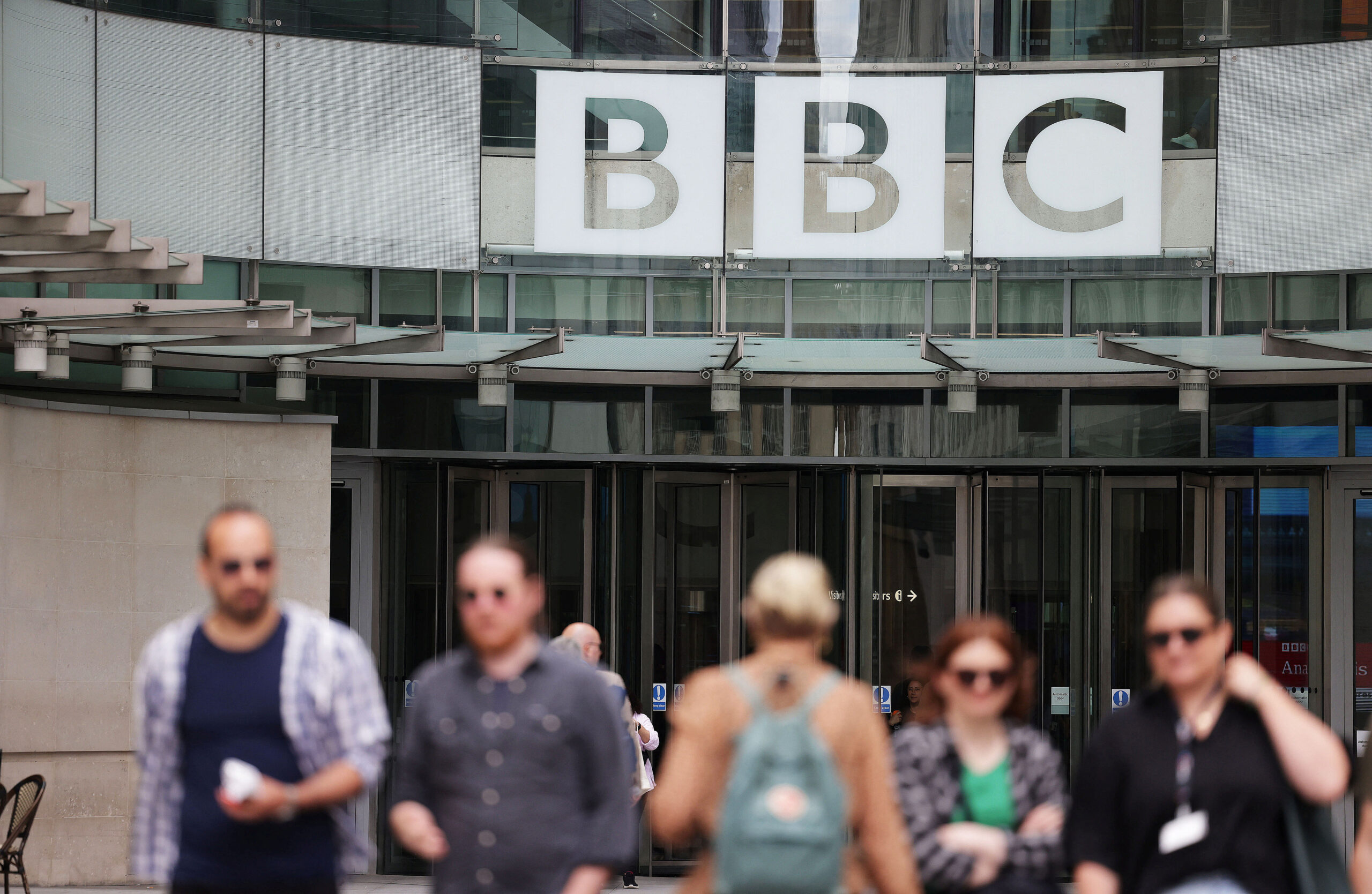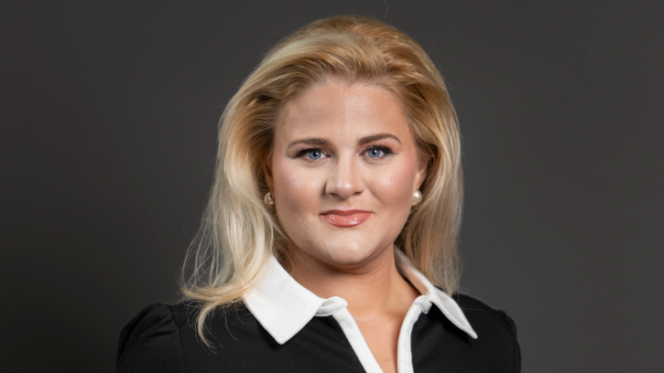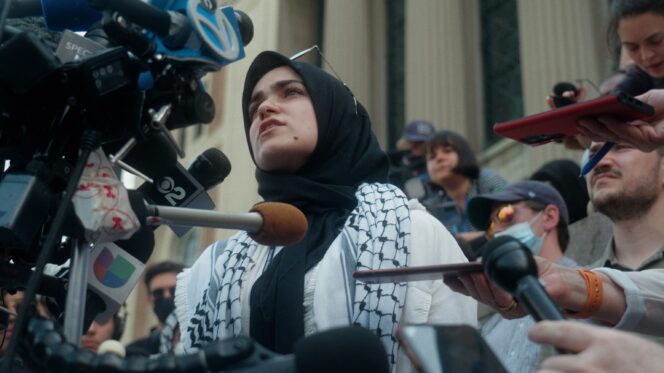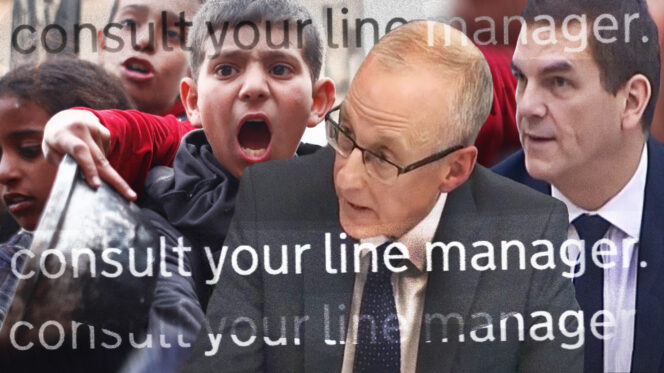BBC Gives Israeli Deaths 33 Times More Coverage, New Study Reveals
So much for impartiality.
by Harriet Williamson
16 June 2025

Paywalls? Never. We think quality reporting should be free for everyone – and our supporters make that possible. Chip in today and help build people-powered media that everyone can access.
Comprehensive new research finds the BBC coverage of Israel’s genocidal war on Gaza is systematically biased against Palestinians and fails to reach standards of impartiality.
Analysis of more than 35,000 pieces of BBC content by the Centre for Media Monitoring (CfMM) shows Israeli deaths are given 33 times more coverage per fatality, and both broadcast segments and articles included clear double standards. BBC content was found to consistently shut down allegations of genocide.
These findings directly contradict claims by authors of a September 2024 report on BBC impartiality. Led by Israel-based British lawyer and Zionist Trevor Asserson, the Asserson report’s authors alleged their study across a four-month period revealed a “deeply worrying pattern of bias” against Israel. The Asserson report was funded in part by an anonymous “Israeli businessman based in London” and carried out by Israeli lawyers as part of an opaque group called Research for Impartial Media (RIMe). It received tech support from AI company Blueskai, which describes itself as “fortified by strategic roots in Israel’s prime minister’s office”.
The CfMM analysed a total of 3,873 BBC articles and 32,092 broadcast segments from 7 October 2023 to 6 October 2024, alongside a comparative analysis of 7,748 articles on the war in Ukraine. During the 12-month analysis period, 42,010 Palestinians and 1,246 Israelis were killed – a ratio of 34:1.
Using large language model classification, keyword detection and case studies – some of which extend into 2025 – the study identifies “systematic patterns” that raise serious concerns about the public service broadcaster’s adherence to obligations set out in the royal charter of upholding “British values of accuracy, impartiality and fairness”.
The CfMM research found that the BBC used emotive terms – “brutal”, “atrocities”, “slaughter”, “barbaric”, “deadly” – four times more often for Israeli victims. It applied the term “massacre” 18 times more to Israeli casualties, and used the word “murder” 220 times for Israeli deaths compared to just once for Palestinians. The words “butchered”, “butcher” and “butchering” were found to be used exclusively for Israeli victims by BBC correspondents and presenters.
Despite Gaza suffering 34 times more casualties than Israel, the BBC ran almost equal numbers of humanising victim profiles. It was also found to have attached “Hamas-run health ministry” to Palestinian casualty figures in 1,155 articles – almost every time the Palestinian death toll was referenced across BBC articles.
The BBC was found to consistently and repeatedly suppress allegations of genocide. BBC presenters shut down genocide claims in over 100 documented instances, while making zero mention of Israeli leaders’ genocidal statements, including Israeli prime minister Benjamin Netanyahu’s biblical Amalek reference.
In January 2024, the international court of justice found a plausible risk that Israel is committing genocide in Gaza. Over the past 20 months, Israel has killed at least 62,000 Palestinians in its ongoing assaults on the Gaza Strip.
When reporting on attacks on Palestinians, the study found the BBC repeatedly obscured Israeli responsibility through the use of passive language in headlines. Israeli perspectives were found to be prioritised, with BBC presenters sharing the Israeli perspective 11 times more frequently than the Palestinian perspective – 2,340 times for Israeli compared to 217 times for Palestinian.
No context.
The CfMM report highlights a lack of key historical and contemporary context in BBC reporting, calling this systematic omission “institutional” at the public broadcaster.
It found that the 7 October attacks were referenced in at least 40% of the BBC’s online coverage – but only 0.5% of articles referenced Israel’s occupation and violence against Palestinians in the months, years and decades before 7 October. Only 2% of articles mentioned apartheid, despite numerous human rights organisations, including Amnesty International, identifying Israel’s policies as such.
The BBC only mentioned “occupation” 0.3% of news articles when providing context to 7 October, “blockade” in 0.08% and “settlements” in 0.03%. A consistent picture emerged in TV and radio, too, while key Israeli military doctrines such as the Dahiya doctrine – centred around large-scale destruction of civilian infrastructure – and the Hannibal directive – preventing the capture of Israeli Defense Forces soldiers at all costs, even if it means killing them – were found to be completely omitted from BBC coverage.
Double standards.
While the BBC pressed a total of 38 interviewees to condemn the 7 October Hamas attacks, equivalent questioning to condemn Israel’s actions took place zero times.
The CfMM study also found serious double standards in BBC reporting on Gaza in comparison to its coverage of Ukraine. The BBC discussed war crimes in Ukraine 2.6 times more than in Gaza. It provided Israeli military justifications in 75% of cases compared to 17% of cases for Russian actions. The BBC reported 62% of journalist deaths in Ukraine compared to just 6% in Gaza.
Israel’s genocidal war on Gaza has killed at least 232 journalists and media workers. More journalists have been killed in Gaza than in the first world war, second world war, the Vietnam war, the wars in Yugoslavia and the US war in Afghanistan combined. Gaza is the deadliest place on earth to be a journalist.
Another BBC double standard was found in how the broadcaster portrays forcibly detained individuals. Palestinians were labelled “prisoners” while Israelis taken by Hamas and other groups were “hostages”. No Palestinian detainees were referenced as “hostages” – even those held without charge – bar once by a presenter in 2025, which was retracted.
Only six BBC articles referenced “administrative detention”, Israel’s practice of holding Palestinians without charge. At least 10,000 Palestinians are currently imprisoned by Israel, over 3,500 of them have not been charged with a crime, and more than 400 are children.
During the January 2025 hostage exchanges, 70% of articles focused on Israeli hostages despite 90 Palestinians being released compared to just three Israelis. BBC TV and radio ran emotionally engaging and humanising stories about Israeli hostages returning home, while Palestinian detainees were nameless and not afforded the same personal narratives.
Former Conservative party co-chair Baroness Sayeeda Warsi said: “This is no cherry-picked critique. It is a comprehensive, evidence-based indictment that cannot be ignored. This powerful research by the Centre for Media Monitoring exposes how, during Israel’s war on Gaza, the BBC consistently prioritised Israeli pain and perspective – at the expense of Palestinian lives and voices.”
Ofcom declined to comment.
A BBC spokesperson said: “We welcome scrutiny and reflect on all feedback. Throughout our impartial reporting on the conflict we have made clear the devastating human cost to civilians living in Gaza. We will continue to give careful thought to how we do this.
“We believe it is imperative that our journalists have access to Gaza, and we continue to call on the Israeli government to grant this.
“We agree that language is vitally important but we have some questions about what appears to be a reliance on AI to analyse it in this report, and we do not think due impartiality can be measured by counting words. We make our own, independent editorial decisions, and we reject any suggestion otherwise.
“However, we will consider the report carefully and study its findings in detail.”
Harriet Williamson is a commissioning editor and reporter for Novara Media.


